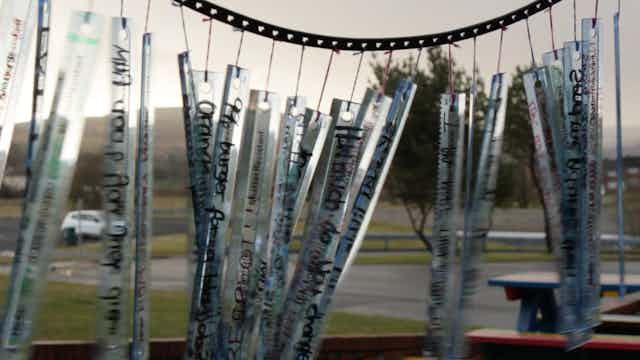Children and young people’s experiences of sexual harassment in British schools has reached a crisis point. When the first parliamentary inquiry report into sexual harassment and sexual violence in schools was launched in late 2016 it included more than 70 submissions with 12 recommendations including that sexual violence “will only be reduced by a whole-school approach”.
It also recognised that children need to be educated about gender equality to address “entrenched views about gender norms”, which are often used by children and adults to justify and undermine sexual harassment – including homophobic and heterosexist verbal abuse, and physical sexual assault – in primary and secondary schools.
And yet, though there have been some moves to address the inquiry’s recommendations, the focus has been almost exclusively on protection, safeguarding, and curriculum content. Understanding and preventing sexual harassment in schools appears to be slipping off the policy agenda.
But the matter has not fallen completely into stagnation: children and young people are beginning to address the problems themselves.
Youth activism
For the last decade young people have been leading activism on a vast range of issues, from skirt-length, slut-shaming, sexual consent, female genital mutilation and misogynoir in the music industry, to trans-rights, inclusive sexuality education and why feminism should be on the school curriculum. Knowingly or unknowingly supported by a rich history of feminist+ movements and legacies, children and young people are creating their own distinctive ripples and waves to new and enduring intersectional gender and sexual inequities.

However, calling-out gender norms, and their intersections with other markers of difference – age, ethnicity, religion, faith, sexuality, dis/ability, locality and so on – is not without risk. Young people and their adult allies all too often experience a backlash when raising awareness of gender and sexuality issues. Some debates are derailed before they get started by assumptions that are too often steeped in what is considered socially and culturally “taboo”, or what is developmentally and age appropriate.
What children and young people urgently need are supportive and safe spaces to express and do something about the gender and sexual injustices they feel and see. They also need people, structures, and the knowledge that can nurture and sustain their rights. But getting this to work in schools is no easy task.
On the agenda
At present, Wales is the only nation that has a devolved government guide for taking a whole school approach to sexual harassment, backed by law. But we wanted to go further than this, and support young people themselves.
Our research project explicitly set out to listen to the experiences of everyday sexism and sexual harassment by children aged ten to twelve. Even at this age, they were frustrated and angry at having to put up with these forms of abuse, and not knowing what to do about it.
We listened, and we acted. The result was a national resource kit for Wales, made in partnership with Cardiff University, the Children’s Commissioner for Wales, NSPCC/Cymru, Welsh Women’s Aid, young people and practitioners. Importantly, AGENDA: A Young People’s Guide to Making Positive Relationships Matter takes forward a core component of Wales’ whole school approach – supporting young people to take action themselves.
With equality, diversity, children’s rights and social justice at its heart, AGENDA enables young people to speak out on gender and sexual injustices and violence through their own and others’ change-making practices. It’s an affirmative, ethical-political and creative approach to learn about and change deeply entrenched and complex issues.
It recognises the powerful potential of how arts-based methods, such as visual arts, poetry & theatre, can enable young people to engage with all too frequently silenced issues. It can help make the personal political in collective ways: from LGBQ&T and feminist youth groups delivering staff workshops on gender diversity, using card games and cooking as a form of engagement.
There have been more striking art-activisms to come out of the guide too. Graffitied ruler-skirts have been worn in school assemblies to speak out about unwanted touching, and physics concepts like force, friction and gravity, have been used to explore coercion and control in teen relationships.
Of course, AGENDA is only a resource, and resources need to be used, enlivened and supported. But it joins an increasing number of local, national and international practices, supported by organisations, networks and, in this case, national governments.
However, key questions still remain. Assets like AGENDA can be radical and risky to implement for students and their teachers. So how can schools, communities and service providers be better supported to work together to address the complex and intersectional ways in which sexual harassment and violence is experienced? Especially in times of austerity and government cuts? How can children and young people be further supported to speak out on issues that are too often silenced, normalised or stigmatised? And what does it mean to challenge the impact of gender norms and inequalities in the midst of a Gender Revolution?
Our work is a start but still more needs to be done – and young people are the key actors in taking these agendas forward.

